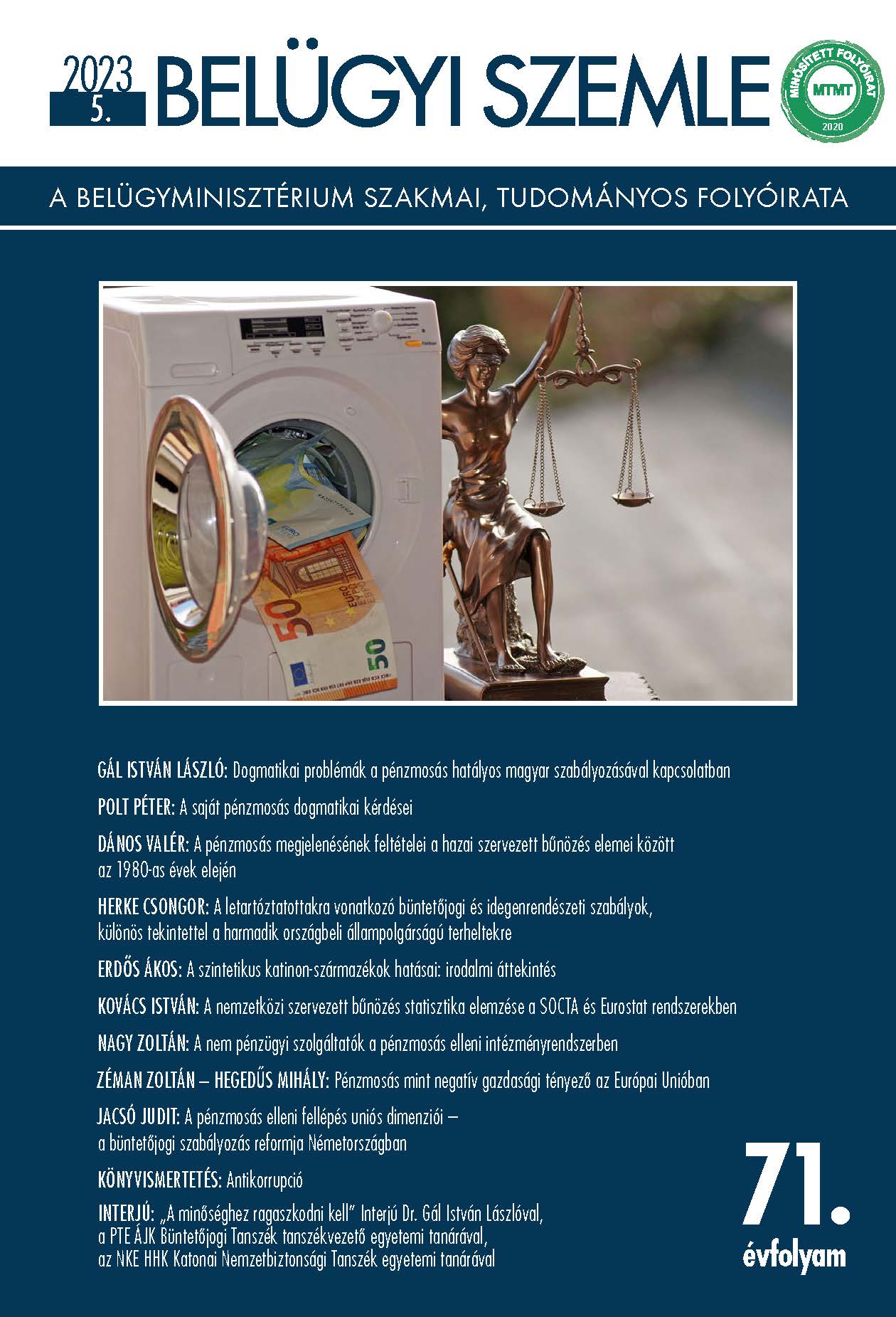Abstract
Aim: The aim of study is to outline the cornerstones of the (EU) 2018/1673 Directive on combating money laundering by criminal law and to show how a Member State, Germany, has fulfilled its legal harmonization obligation in the field of the criminal law regulation.
Methodology: During the research, the relevant EU legislation was presented, and the German Criminal Code was analyzed in terms of the dogmatic analysis of the money laundering offence.
Findings: Despite the regulations of the EU Directives, there are significant differences between national regulations. The Amendment of the Criminal Code in 2021 introduced a paradigm shift in the criminal law regulation of money laundering in Germany. It introduced the so-called "all crime" approach in connection with the predicate offences. It is also worth mentioning that the German Criminal Code makes specific provision for the criminalization of the predicate offence committed abroad.
Value: Regarding the cross-border nature of money laundering, it may be useful for both legislators and practitioners to familiarize themselves with the legislation of other Member States. In Hungary, there has been no recent academic work on the German legislation in force.
